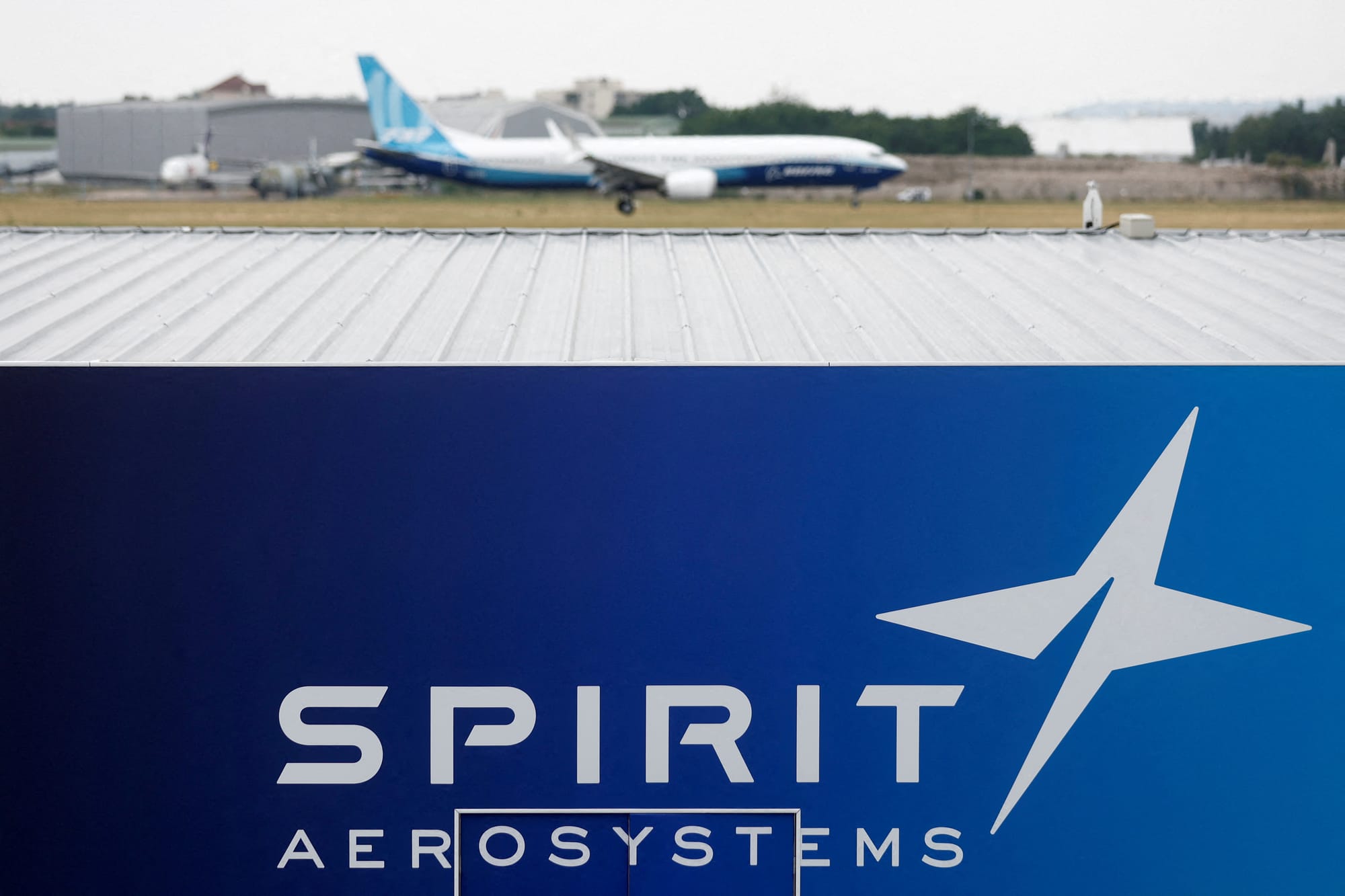Boeing Scoops Up Spirit AeroSystems in $4.7 Billion Stock Deal: Airbus Takes a Slice, Too
Boeing (NYSE: BA) has struck a significant agreement to reacquire Spirit AeroSystems (NYSE: SPR), currently the world's largest independent aerostructures producer, in a deal valued at $4.7 billion in stock. Meanwhile, Airbus (EPA: AIR) has orchestrated its own maneuver to absorb Spirit’s struggling Europe-centric operations with substantial compensation flowing in its direction. This intricate, cooperative strategy ends Spirit’s near 20-year run as a standalone entity after its initial spinoff from Boeing in 2005.
Boeing’s decision to bring back Spirit was largely driven by a major hiccup: the 737 MAX crisis, which reached a boiling point with a dramatic door plug blowout mid-flight in January. This incident spotlighted critical issues in the fuselage manufacturing domain, prompting Boeing to fortify its production quality by reuniting with its former subsidiary. The purchase comes at about $37.25 per share, encompassing an enterprise value of $8.3 billion, including debt.
Pat Shanahan, CEO of Spirit, reflects positively on the merger, stating, “Integrating Spirit and Boeing once more will leverage the engineering and manufacturing strengths of both firms, particularly in safety and quality systems.” As of last Friday, Spirit’s shares were priced at $32.87, with this deal offering a 30% premium since the initial merger discussions were publicized on March 1.
This pact signifies a vital move for Boeing, which has repeatedly contemplated reacquiring Spirit amid ongoing challenges. Analysts have long noted that Spirit struggled independently despite branching into contracts with Airbus and others. With an eye on resolving its far-reaching industrial and corporate turmoil post the 737 MAX debacle, Boeing makes this bold play. Notably, CEO Dave Calhoun is set to exit amidst these crises, sparking speculation about Shanahan, a former Boeing executive, as a potential replacement. The deal is projected to close by mid-2025, leaving some uncertainty about Shanahan’s future roles.
Airbus Steps In
In a separate but related transaction, Airbus will take over pivotal operations at four of Spirit’s facilities, located in the United States, Northern Ireland, France, and Morocco. This move includes control over minor activities currently performed in Wichita. This Airbus initiative, emerging from the Boeing-Spirit discourse, will undergo further scrutiny during the due diligence.
Airbus’s shares positively moved, opening up 2.4% higher on Monday. Given the money-losing ventures related to these Airbus-focused activities, the European aerospace giant sought up to $1 billion in compensation. However, it will receive $559 million from Spirit as part of the arrangement and will symbolically purchase the assets for just $1. This strategic acquisition echoes Airbus’s 2018 buyout of Bombardier’s CSeries program for the same nominal fee, later rebranded as the A220.
This recent shake-up clarifies the future of Northern Ireland’s top industrial employer for the second time in a few years. Although Airbus inherits Spirit’s high-tech yet unprofitable A220 wing production in Belfast, industry insiders hint that an investment between $1 billion and $2 billion might be necessary to make wing production economically viable.
Spirit AeroSystems also announced plans to divest its businesses and operations in Prestwick, Scotland, Subang, Malaysia, and some non-Airbus supporting ventures in Belfast.
This revolution in the aerospace landscape not only reshapes Spirit’s future but also aims to mend Boeing’s reputational and operational wounds while providing a newfound pathway for Airbus to streamline its internal supply chain dynamics.


 BA
BA
 SPR
SPR







